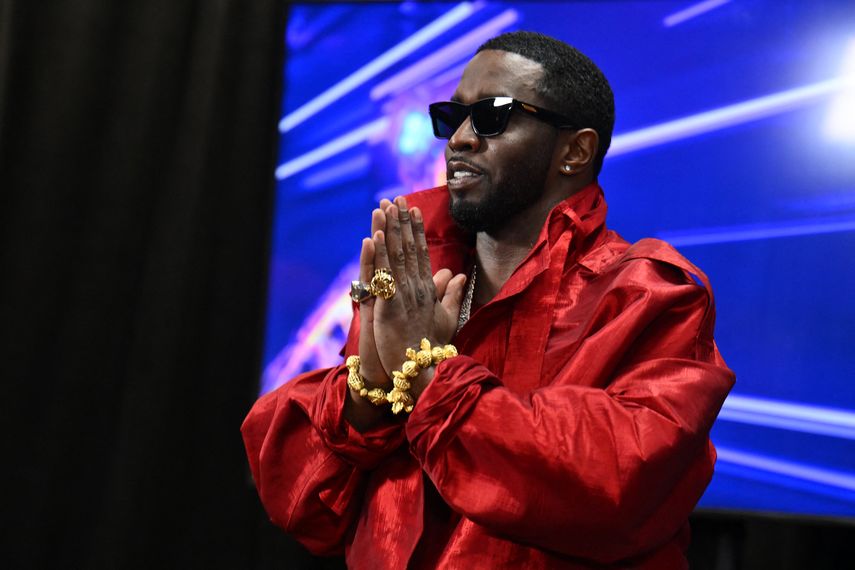Sean W. Scott: Exploring The Rich History Of An Irish Name
Have you ever stopped to think about the story a name carries? So often, a name like sean w scott holds so much more than just a label. It can be a tiny piece of history, a whisper from generations past, or even a link to a faraway land. Today, we're going to pull back the curtain on the name Sean, and what it means for someone bearing this very special identifier.
There's a real charm in discovering the journey of a name, don't you think? Like a well-traveled friend, each name has its own tales to tell. We find ourselves asking where it came from, how it changed over time, and what little cultural echoes it still holds. This exploration helps us connect with language in a very personal way, actually.
For anyone named Sean, or perhaps someone like sean w scott, knowing the background of their name can feel pretty cool. It gives a sense of place, a connection to a heritage that might otherwise stay hidden. We'll look at the roots of "Sean" and how it fits into the broader world of names, you know, in a way that feels pretty important.
Table of Contents
- The Name Sean: A Glimpse into its Linguistic Journey
- Pronunciation and Spelling Variations
- The Enduring Appeal of Sean
- Why Names Change: The Broader Picture
- People Often Ask About the Name Sean
- Final Thoughts on Names and Identity
The Name Sean: A Glimpse into its Linguistic Journey
The name Sean, as in sean w scott, carries quite a rich history. It isn't just a sound; it's a word that has traveled through time and across cultures. We can trace its beginnings back to a very familiar English name, which is pretty interesting when you think about it.
Understanding the Name 'Sean'
When we consider the name Sean, we're looking at something truly special. It has distinct characteristics that set it apart. This name, for instance, has a particular way it's written in its native language, and it also connects to a much older, more common name, you see.
| Attribute | Details |
|---|---|
| Origin Language | Irish (Gaelic) |
| Root Name | John (English) |
| Meaning (via John) | "God is gracious" |
| Irish Spellings | Seán, Séan |
| Type of Name | Hibernization / Transliteration |
This table gives us a quick look at the core details of the name. It helps us see, in a simple way, how "Sean" fits into the bigger picture of names and their beginnings. So, it's not just a name; it's a piece of linguistic art, in a way.
From John to Sean: A Hibernization Story
It's quite fascinating to learn that the name Sean is, actually, what we call a "hibernization" of the English name John. What does that even mean, you might ask? Well, it means that the name John was taken and changed to fit the sounds and rules of the Irish language. It's like giving an old friend a new, culturally specific nickname, basically.
This process of hibernization isn't just a simple spelling change; it's a full transformation. The text tells us it's a "transliteration of John into a form which can be pronounced in Irish." This means that the sounds of "John" were adapted to match the sounds that Irish speakers would naturally make. It's a very clever way to make a foreign name feel right at home, you know.
Think about it: the English "John" has a certain sound. To make it truly Irish, it needed to be re-shaped. This re-shaping resulted in "Sean," with its distinct Irish pronunciation. It shows how languages borrow and adapt from each other, creating new forms that still carry the essence of the original. This is a common practice in language, you see.
Irish Naming Conventions: A Unique Path
The name Sean, being an Irish name, follows a completely different set of rules compared to English names. This is a very important point. Irish names have their own grammar, their own ways of changing form depending on how they are used in a sentence, which is quite unlike English.
For example, Irish names often have different forms for male and female versions, or they might change slightly when used with certain prepositions. These rules can seem a bit complex at first, but they are part of what makes the Irish language so rich and expressive. It's a system that has been developed over many centuries, after all.
When someone is named Sean, they carry a name that is deeply rooted in this unique linguistic system. It's not just about the sound; it's about the structure and the tradition behind it. This tradition gives the name a special kind of depth, a bit of an old soul, if you will.
Pronunciation and Spelling Variations
The text mentions that Sean can be written as "Seán" or "Séan" in Irish. These little marks above the vowels, called fadas, are very important in Irish. They tell you how to pronounce the vowel, making it a long sound. Without them, the pronunciation would be quite different, you know.
For "Seán," the fada over the 'a' makes it sound like the 'aw' in "dawn" or "pawn." So, it's pronounced something like "Shawn." When you see "Séan" with the fada over the 'e,' that changes the sound a little, making it more like "Shane" or "Shayn." These subtle differences matter a lot in Irish, actually.
Understanding these spellings and their sounds is key to truly appreciating the name. It shows the precision within the Irish language, where a small mark can change everything. For someone named sean w scott, knowing these nuances connects them to the authentic way their name is spoken in its original tongue, which is pretty neat.
The Enduring Appeal of Sean
Despite its ancient roots and specific linguistic rules, the name Sean has found its way into many cultures beyond Ireland. It remains a popular choice for parents all over the world. This enduring appeal speaks to the name's simple charm and its strong, clear sound, you see.
People often choose names like Sean because they sound friendly and familiar, yet still carry a sense of heritage. It's a name that feels both traditional and modern, which is quite a balance to strike. For someone named sean w scott, their name carries this widespread recognition, connecting them to a global community while still honoring its Irish origins, more or less.
The name's journey from a specific Irish form of John to a widely recognized name is a testament to its adaptability. It shows how names can travel and be embraced by different communities, taking on new life in new places. This kind of popularity helps keep the name vibrant and relevant, even today.
Why Names Change: The Broader Picture
Our source text touches on a bigger question: "Why is Robert called Bob and John called Jack sometimes, what is the history of or reason for this practice in changing the English names of people?" This question is very relevant to understanding Sean's journey from John. Names often evolve for many reasons, after all.
One big reason is simply ease of pronunciation or affection. Nicknames often arise from a desire for a shorter, more casual form of a name. Think about how "William" becomes "Bill" or "Richard" becomes "Dick." These changes are natural linguistic shortcuts that people adopt over time, you know.
Another reason names change is through cultural exchange, much like "John" becoming "Sean." When names cross borders, they get adapted to the sounds and spelling rules of the new language. This helps them fit in and be easily spoken by local people. It's a way for languages to interact and influence each other, which is pretty cool.
Sometimes, name changes reflect historical events or social trends. Certain names might fall out of favor or new variations might emerge. The practice of changing names, or creating new forms from old ones, is a constant part of human language. It shows how dynamic and alive our words truly are, basically.
People Often Ask About the Name Sean
When people hear the name Sean, they often have a few common questions. It's pretty natural to be curious about names, especially ones with such a clear cultural tie. Here are some questions people frequently ask, along with some simple answers, you see.
- Is Sean an Irish name?
Yes, absolutely! Sean is a distinctly Irish name. It is widely used in Ireland and by people of Irish heritage around the world. It carries a strong connection to Irish culture and language, which is pretty clear.
- What is the origin of the name Sean?
The name Sean comes from the English name John. It's a special kind of adaptation, known as a "hibernization." This means it was changed to fit the pronunciation and spelling rules of the Irish language, which is quite a transformation.
- How is the name Sean related to John?
Sean is the Irish version or equivalent of the name John. It's like how "Juan" is the Spanish version of John, or "Jean" is the French version. They all share the same root meaning, but they've been shaped by different languages, you know.
Final Thoughts on Names and Identity
Thinking about a name like sean w scott really opens up a conversation about how names work. They are more than just labels; they are little pieces of history and culture that we carry with us every day. The journey of "Sean" from "John" is a neat example of how language lives and breathes, constantly changing and adapting, actually.
Understanding these stories helps us appreciate the richness of our own names and the names of those around us. It gives us a deeper sense of connection to our past and to the wider world. So, the next time you hear a name, perhaps you'll think about its own unique adventure. Learn more about names and their meanings on our site, and you can also link to this page for more fascinating name origins.

Pictures of Sean Connery

Download Sean Penn American Actor Stolen Shot Wallpaper | Wallpapers.com

Sean Diddy Combs busca un indulto de Donald Trump